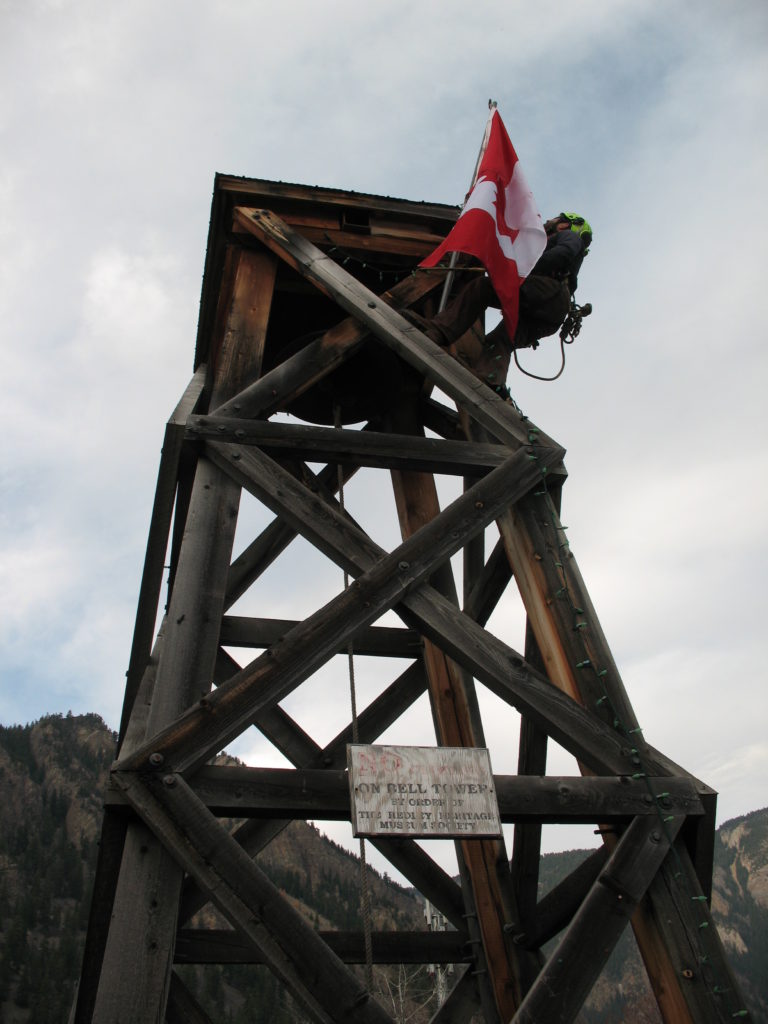
As an adolescent growing up in a rural British Columbia community, I was profoundly impressed by individuals who accomplished the extraordinary. New York Yankees center fielder Mickey Mantel was at the top of my personal list. Scientist Albert Einstein grabbed my rapt attention, as did best selling writers like Ernest Hemingway and John Steinbeck.
Examining my list now, I’m amazed at how little attention I gave to Canadians at that young age. With Canada Day approaching I decided it was time for a little re-education to fill in some of the gaps of my understanding of Canada’s history. I concluded that although to my young mind, Canadian achievements may not have seemed as spectacular as Mickey Mantel leaping high in the air to catch a fly ball at the fence, we have reason to celebrate our past.
I began with an obvious question. Who named our country? Lately I’ve heard some individuals say we should not call our celebration Canada Day because it likely is offensive to indigenous people. According to history texts, explorer Jacques Cartier heard the name Kanata referred to by indigenous people. It was the name of a village situated on the present site of Quebec City. Cartier assumed it meant the entire country and he named it Canada.
Indigenous people played a crucial role in enabling early Europeans to explore and exploit Canada, with its vast often treacherous terrain and harsh weather. They provided the light, versatile birch bark canoes which could more easily be carried on portages.
When greedy white hunters killed off the the buffalo herds and settlers stole the land, indigenous people became hungry and restless. It was a time of desperation and turmoil. The young men clamoured for war.
Chief Poundmaker of the Saskatchewan Cree recognized that the settlers would be able to eradicate his people with their superior weapons and numbers. A man of great dignity and honour, he was guided by a selfless desire to obtain a good life for his people. Rather than advocating violence, Chief Poundmaker asked the government to provide instruction in farming and other types of assistance in exchange for their land. With words and example, he reasoned with his people and averted much of the potential shedding of blood. The government moved people onto reserves, but reneged on the promises to provide the help they needed.
While indigenous people were being relegated to reserves, white settlers, mostly European, were setting in place the basics of this country. George Brown, a reform minded British Canadian established the Toronto Globe, which became Canada’s most influential newspaper at the time. He was active in the pursuit of national unity and attended the Charlottetown and Quebec conferences in 1864. In 1867 he participated in the forming of The Liberal Party. He was also a member of the Elgin Association, which purchased land for escaped American slaves to live on. He promoted westward expansion and opposed the policies of Conservative Prime Minister John A. Macdonald.
Kit Coleman, an Irish Canadian columnist has been largely forgotten, and yet her example inspired women to believe they could set more challenging goals and achieve them. Curious and willing to risk, Kit became the first accredited female war correspondent. She was elected president of the Canadian Womens’ Press Club. Throughout her career she shrugged off the disparaging attitudes of male co-workers who believed a woman’s place was in the home.
Bush pilots played a key role in the opening and development of Canada’s North. Of these pioneering aviators, Clennel Haggerston (1899-1995), better known as Punch, was one of the most daring and adventuresome. Flying more than a million miles across the uncharted North, often in treacherous weather looking for scarce landing strips, he became a legend among the hardy inhabitants of this rugged terrain. Indigenous people dubbed him “Snow Eagle.” He delivered the first air mail to the Northwest Territories. In WW1 he joined the Royal Air Force. A highly skilled pilot, he was credited with shooting down 7 enemy aircraft, a rare feat for bomber pilots.
Canada does have heroes. Some, like Terry Fox uplifted our spirits and will not soon be forgotten. Others, including Private Smoky Smith in WW1 inspired his comrades in arms, but his name probably is not recognized by many Canadians in our time.
Canada Day. It can be a reminder to pause at least for a few moments and honor our many unsung heroes.

